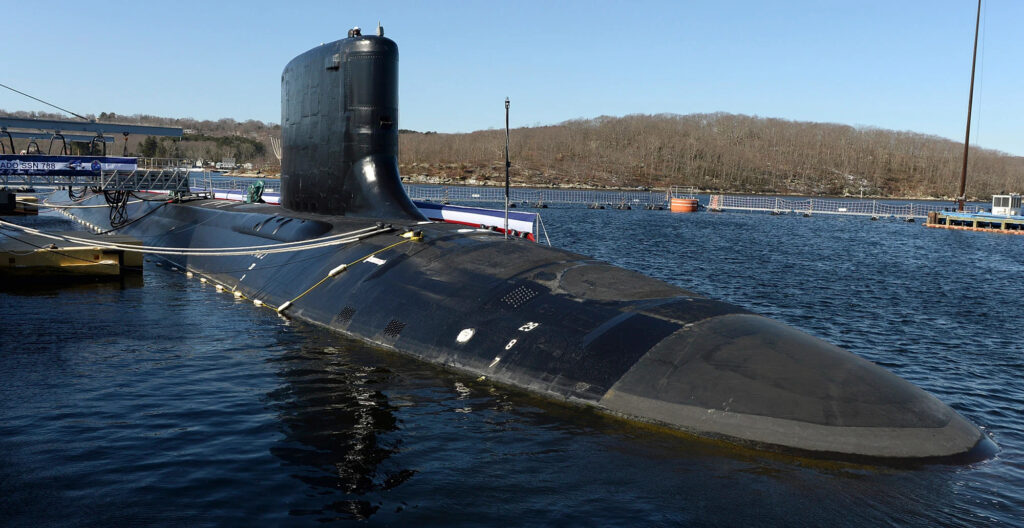There has been much media coverage and an almost hysterical reaction from various quarters surrounding the controversial Aukus nuclear submarine deal. It is clear the political implications at least are highly significant as three strong and historically traditional “Anglo-Saxon” allies – Australia, the United Kingdom and the United States – come together under the Aukus umbrella in what is touted as a historic defence accord focused on the Pacific.
An editorial in the Post said it is clear that “the plan amounts to nuclear proliferation” – but it is not, as many readers have been only too happy to point out in their comments.
First, whether this decision is helpful in furthering world peace or prudent in the current geopolitical climate is not for me, a mere scientist, to judge. For me, the greater concerns are the eye-watering costs to the Australian taxpayer, the often clumsy and unhelpful political messaging from the commentariat, and the significant environmental considerations.
The issues surrounding the processing and storage of spent reactor fuel are arguably more important than the ramp-up in military capability for a mid-ranking power like Australia, which in any event would be unlikely to act unilaterally in any great power game.
Indeed, Australia, as part of the deal, should have argued strongly for any spent reactors to be taken back to the US for storage after the submarine’s working life is over – especially for the three Virginia-class US submarines Australia will purchase to start with by the 2030s, with the option to buy two more.
After all, these vessels are all American built and currently remain on the US’ inventories. They were all presumably already included in the US’ forward planning for eventual decommissioning and disposal, so why not let that process continue?
For the planned newer nuclear-powered submarines, who knows what the world will look like decades into the future? This is especially so if you read the latest report by the Intergovernmental Panel on Climate Change which said that based on the current trajectory, it is likely that global warming will exceed 1.5 degrees Celsius during the 21st century.
So some better appreciation of the temporal context here might be useful, especially given how much the world has changed since Covid-19 hit. The hysteria surrounding any mention of the word “nuclear”, and this submarine deal in particular, from diverse quarters, is unnecessarily sensationalised and unscientific.
The hysteria is worrying and not conducive to peaceful coexistence in the current tense international climate. We already have a planet-wide existential climate emergency to deal with, a cost-of-living crisis in many countries, bank collapses that threaten a repeat of the financial crisis of 2008, a vicious war in Ukraine and, mostly, a manufactured rise in tensions over Taiwan.
So let’s try to dial down the rhetoric and look at this Aukus submarine issue more objectively, based on facts and evidence.
At least seven countries are known to have the capacity to deploy nuclear weapons at sea: the US, Russia, China, United Kingdom, France, India and North Korea, the latter using diesel-electric submarines.
The propulsion system for the Aukus submarines is a nuclear reactor rather than a diesel engine that produces electricity. This enables them to move faster and stay underwater for longer periods than conventional submarines and so have greater range.
However, Aukus leaders have said that the submarines involved in the deal will not carry nuclear weapons. They are a significant leap in capacity, but not in the same ballpark as vessels that carry nuclear missiles.
Too much is being made of the fact they are nuclear-powered when this is only for propulsion and endurance. The weapons they will carry are conventional torpedoes like the existing Australian Collins class which they will replace.
The total number of Australian submarines will not be very large, even if the country doubles the current six to around 12 in the longer term. Increasing the number of submarines is not too surprising given there is an island continent to look after with a 34,000km coastline.
Furthermore, for the first 20 or so years of this accord, Australia will only own and have control of three to five existing US-built Virginia-class nuclear-powered submarines. They do not even add to the current global fleet of around 130 such vessels already out there. Indeed, it is likely some of these US nuclear submarines already patrol the seas in and around Australia.
When such patrolling nuclear submarines become Australian-controlled, one could argue this makes their use safer, as politically they will operate, one hopes, for Australia’s benefit and security and not that of the US when national interests diverge, as they often do.
As an Australian, I would like to see a foreign policy that first and foremost serves our own national interest and not that of another power, regardless of how close and valuable certain relationships are because there are many such important relationships, including the exceptionally important trade relationship with China.
So cooler heads should speak up and put this Aukus deal in better context – yes, it is a significant capacity increase but perhaps not quite in the way many people think when the dreaded word “nuclear” is included.
Source: scmp

